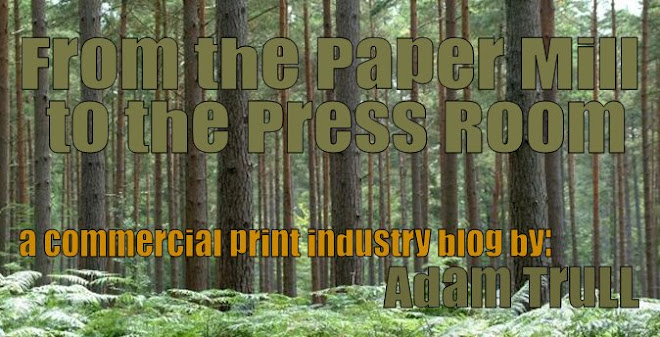This is a heavy one. Pardon me while I digress for the moment and not discuss commercial printing/business/marketing, but instead, something that undoubtedly effects us all...
I was inspired to blog, after recently reading an article on “sustainability”. Sustainability, as most first-world societies think of it, refers to preserving our environment and natural resources so that we don’t irreversibly destroy the Earth in which we live upon. As an advocate for living an eco-sustainable life-style, I truly appreciate discussing and voicing my opinion on this topic.
Eight years ago, I introduced myself to eco-sustainability during my studies in college. I entered an introductory environmental conservation class as an elective, thinking that it would be a gravy-train to an easy “A”. Raised in a suburban, middle-class, conservative right-wing house-hold, I had never truly encountered the macro-appreciation of our planet’s resources. During this class, we had many open-discussion forums, in which the class quickly realized that I was a right-wing “wolf in sheep-skin”.
During this time, the Kyoto Protocol had become a key environmental conservation issue. The Kyoto Protocol is a treaty proposed by the United Nations that asked major economically developed countries to reduce their carbon emissions, to regulate climate change (i.e. Global Warming). As a business and marketing student, I adamantly argued to the class that although I was in favor of reducing emissions, this would cripple our economy; an argument that many U.S. political leaders still support. While my studies in this course didn’t make me an environmental-steward overnight, they left a lasting impression that has given me a unique perspective on what it truly means to me to live and hopefully encourage others to live, a conservative life.
Eight years later, I find that sustainability caries an even greater poignancy in our society. With some of the world’s largest companies at their knees, with a real-estate and mortgage industry crippled, with an auto-industry that is beyond repair, and with financial markets, currencies, and a world-economy that is nearing The Breaking Point, sustainability seems to be a valuable principle in the business world. Let’s face it, the web of domestic industries and international markets are so tightly intertwined, that if one of the “pillars” of our economy begins to crumble, the entire “roof” can cave in; as was the cause of our current economic climate: the mortgage industry.
We (society) mindlessly over-consumed. We over-sold mortgages to borrowers who couldn’t pay them back; we over-compensated executives who were required to beat performance goals, regardless of how they accomplished it; we promised share-holders to beat profits and grow our companies, regardless of the cause-and-effect; we over-produced, growing our manufacturing capacity to meet the peaks of demand (peaks that will very likely, never be met again); and now, we have over-extended our credit, writing trillion-dollar stimulus bills backed by overseas bonds and by printing currency backed by nothing, which will in turn lead to SERIOUS inflation (in 8 to 12 months, when our income remains the same, and inflation causes the market prices to grow by 20 to 40 percent, we won’t be able to purchase what we used to with our dollar).
Sustainability, as defined by Webster’s Dictionary is, “relating to, or being a method of harvesting or using a resource so that the resource is not depleted or permanently damaged”. We, economically developed societies, now have dual responsibilities: make business and personal decisions that encourage economic AND environmental sustainability. If we do not, we will eternally punish ourselves, the millions of plant and animal species who lived peacefully for millions of years prior to human-kind, and our generations to come, by irreparably destroying our most important resources: our Constitution, our values and our principles that America's forefathers founded our country upon, our free-market economy, and our entire planet’s fragile eco-system.
Subscribe to:
Post Comments (Atom)


No comments:
Post a Comment